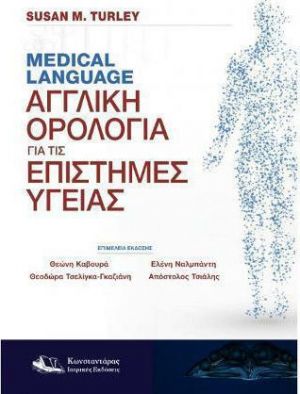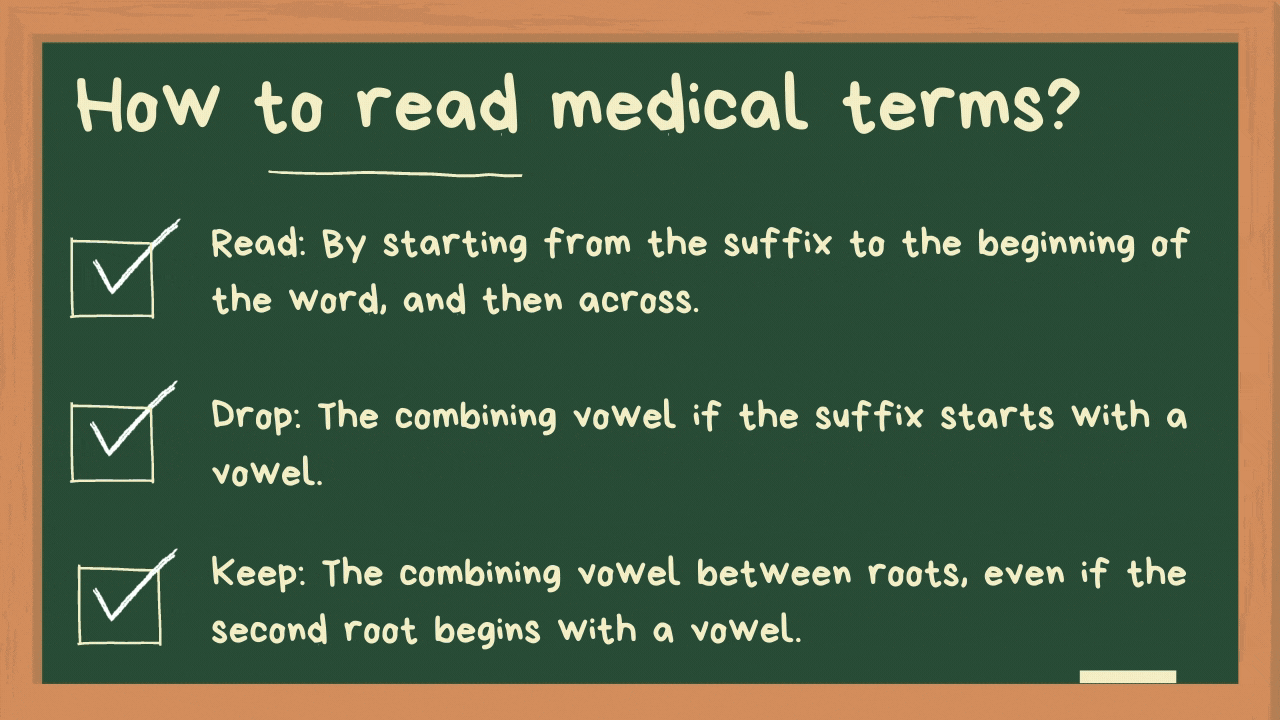Language/Modern-greek-1453/Culture/Greek-in-Medical-Vocabulary
Borrowings from Greek in medical vocabulary[edit | edit source]
The society of ancient Greece placed a high premium on literature just as much as it did on the realms of science and mathematics. Therefore, it is hardly surprising that Greek physicians particularly stood out in the field of diagnostics—an area that significantly gains from a well of imaginative prowess and an inclination for metaphorical thought.
For instance, the Greek term "diabetes mellitus" translates directly to "flowing through/sweet as honey". This term was initially used to describe the sweet scent of urine from a person diagnosed with diabetes. Greek physicians developed terminologies for various medical conditions that continue to serve as the basis for modern-day disease classifications.
The Romans eagerly acquired this invaluable pool of medical knowledge from the Greeks, ensuring its preservation through meticulous translations into Latin and dissemination amongst their extensive subjects. Cornelius Celsus, a Roman nobleman, compiled a vast medical encyclopedia known as De Medicina (About Medicine), documenting the contemporary knowledge of Greek and Roman medicine.
Besides Greek and Latin, Arabic emerged as another significant language in the field of medicine, thanks to the remarkable expansion of the Arab empire during the 7th century. Arab doctors enthusiastically embraced Greek medical wisdom, guaranteeing its preservation and enriching it further.
The most revered Arab physician was Ibn Sînâ, also known as Avicenna in Latin (10th–11th century). His magnum opus, The Canon of Medicine, a comprehensive medical encyclopedia, became a central medical text in numerous medieval universities and remained in use up until the 17th century.
Numerous Arabic terms entered English via Latin and then French. These include words like alcohol, alchemy, alkali, and nitrate. French played a crucial role in bridging the gap between Latinized Greek and English, with countless Greek- and Latin-rooted words becoming an integral part of contemporary English vocabulary. These words include superior, inferior, male, female, face, gout, migraine, odor, ointment, pain, venom, acne, basis, chaos, character, criterion, dogma, horizon, stigma, asthma, trauma, and so on.
A group of influential Italian doctors established a prominent medical school in Salerno (Italy) during the Middle Ages, sparking a revival and appreciation of Greek physicians' teachings, such as those of Hippocrates and Galen. This trend was emulated by medical schools across Europe, uniformly adopting the blended Greek and Latin terminology. The Latinized form of Greek remains in use by medical scientists to this day.
Word Formation[edit | edit source]
As previously noted, Greek physicians excelled in diagnostics, which is why many clinical terms originate from Greek words such as cardiology, nephropathy, and gastritis. Conversely, Latin terms primarily make up the anatomical vocabulary, with examples like cor, ren, and ventriculus.
The Greek language proves to be a fertile ground for specialized terminology due to its inherent flexibility, particularly its exceptional capacity for compound word construction. As medical science rapidly advanced over the past two centuries, necessitating a wealth of new terms for freshly identified diseases and innovative medical equipment, Greek words—often in their Latinized forms—emerged as the preferred choice. Interestingly, nearly half of the commonly used medical terms, though rooted in Greek and Latin, are less than a century old.
Table 1 below pairs some Greek words for human body organs or parts with the corresponding common medical conditions and human organs in straightforward English:
| Organ in Greek | Organ in English | Adjective/Disease |
|---|---|---|
| brachion | arm | brachial/ -- |
| derma | skin | dermal/dermatitis |
| hepar | liver | hepatic/hepatitis |
| kardia | heart | cardiac/carditis |
| nephros | kidney | nephric/nephrosis |
| osteon | bone | osteal/osteoma |
* Organs or parts of human body associated with nominal terms
Common diagnostic suffixes[edit | edit source]
| Procedure Suffixes | Lay Description | Term | Meaning |
|---|---|---|---|
| -ec-tomy | cutting out | mastectomy
hysterectomy |
surgical removal of the breast
surgical removal of the womb |
| -emia | in the blood | uremia | urea in the blood |
| -gram | result of imaging | angiogram | blood vessel imaging
recording (visible result of the procedure) |
| -graphy | process of imaging | angiography | blood vessel imaging
recording (the procedure) |
| -itis | inflammation of | arthritis | inflammation of the joint |
| -logy | study
science of |
neurology | study of nerves |
| -plasty | repair | angioplasty | blood vessel repair |
| -scopy | looking | gastroscopy
arthroscopy |
looking inside the stomach
looking inside the joint |
| -(o)tomy | cutting | gastrotomy | operation on the stomach |
Short grammatical suffixes are attached to word roots to form parts of speech, such as adjectives and nouns. Many of these same suffixes are used in the English language. One group of the grammatical suffixes denote pertaining to, as shown in Table below
Pertaining to[edit | edit source]
| Term | Definition |
|---|---|
| cardi-ac | pertaining to the heart (cardi: heart) |
| neur-al | pertaining to a nerve (neur: nerve) |
| muscul-ar | pertaining to muscle (muscul: muscle) |
| pulmon-ary | pertaining to the lungs (pulmon: lung) |
| esophag-eal | pertaining to the esophagus (esophag: esophagus) |
| thorac-ic | pertaining to the chest (thorac: chest) |
| poster-ior | pertaining to the back (of the body) (poster: back (of body), behind, posterior) |
| cutane-ous | pertaining to the skin (cutane: skin) |
| acous-tic | pertaining to hearing (acous: hearing) |
Prefixes: Position, Number, Measurement, and Direction[edit | edit source]
| Prefix | Lay Description | Examples | Meaning |
|---|---|---|---|
| ab- | away from | abductor | leading away from |
| ad- | towards | adductor | leading towards |
| ante- | before | antenatal | before birth |
| bi- | two | biceps | two-headed (muscle) |
| anter(o)- | front | anterior | at the front
front |
| epi- | on top of | epidural | on top of the dura |
| endo- | inside | endoscopy | looking inside |
| intra- | in between | intracostal | between the ribs |
| para- | alongside | parathyroid | alongside the thyroid |
| peri- | around | perinatal | around birth |
| post- | after | postnatal | after birth |
| pre- | before | prenatal | before birth |
| poster(o)- | behind
back |
posterior | at the back
behind |
| inter- | between | interpersonal | between people |
| meta- | beyond
after |
metastasis | secondary growth
secondary spread (of canc |
Prefixes relating to position in the body[edit | edit source]
| Prefix | Meaning of Prefix | Examples | Meaning |
|---|---|---|---|
| a- | no | aphasia | no speech |
| neo- | new | neoplasia | new growth (cancer) |
| dys- | abnormal | dysfunctional
dysmenorrhea |
not functioning normally
abnormal menstrual periods |
| macr(o)- | large | macroscopic | visible to the naked eye |
| micr(o)- | small | microscopic | visible only using a microscope |
| poly- | many | polyuria | [passing] a lot of urine |
| olig(o)- | few | oliguria | not [passing] much urine |
| megal(o)- | large | megacolon | abnormally enlarged colon |
| erythr(o)- | red | erythrocyte | red [blood] cell |
| leuk(o)- | white | leukemia | “white blood” |
| cyan(o)- | blue | cyanosis | having a bluish color |
| melan(o)- | black | melanoma | black swelling |
| hyper- | higher
over- |
hyperglycemia
hyperactive |
high blood sugar level
overactive |
| hypo- | underneath
below |
hypoglycemia | low blood sugar level |
| sub- | underneath
below |
subnormal | lower than normal |
| super- | higher
over- |
superjacent | lying (just) above |
| uni- | one | unilateral | on one side |
| ambi- | both | ambilateral | on both sides |
To Summarize[edit | edit source]
Author[edit source]
- Ευγενική χορηγία που στοχεύει να βοηθήσει μαθητές ή μη, απανταχού της Γης, που επιδίδονται στην εκμάθηση της ελληνικής γλώσσας!
- Contribution bénévole visant à aider les personnes, partout dans le monde, qui sont engagées dans l'apprentissage de la langue grecque !
- Voluntary contribution aimed at helping people, all over the world, who are committed to learning the Greek language!



